|
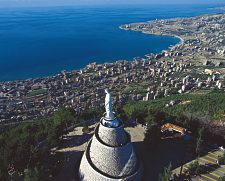
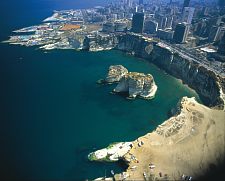
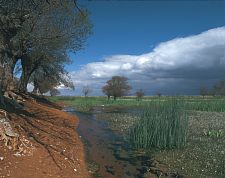
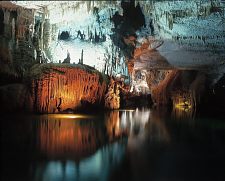
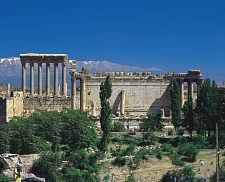
| |
Fighting 'has dealt a fatal blow to hopes of an independent
Lebanon'
By William Wallis* in Beirut
The Financial Times | August 2 2006
Walid Jumblatt, leader of the most powerful clan in Lebanon's Druze community,
said yesterday the conflict between Israel and Hizbollah guerrillas had dealt a
fatal blow to Lebanese hopes of a strong independent state, free of Iranian and
Syrian influence.
Speaking from his family's palatial 18th century redoubt high in the Shouf
mountains above Beirut, Mr Jumblatt said the Shia Hizbollah movement already
sensed victory.
He accused the movement of working to an Iranian and Syrian timetable when it
kidnapped two Israeli soldiers on July 12, triggering a devastating Israeli
retaliation.
In the process, Hizbollah had "stolen the hopes" of young Lebanese whose
protests last year helped force Syria to withdraw its troops after 22 years in
Lebanon.
But he said that like many Lebanese he had to support the Shia movement in its
resistance against "brutal Israeli aggression". They were "a well entrenched
guerrilla army, not afraid to die, plus they are fighting Vietcong style", he
said. Israel's widening offensive would only cause more destruction and weaken
further the Lebanese state.
"After the 12 July, Lebanon is now unfortunately being entrenched solidly into
the Syrian-Iranian axis," he said. "The hopes of a stable, prosperous Lebanon
where we could attract investments is over for now. It is a fatal blow for
confidence."
Mr Jumblatt has navigated the ups and downs of Lebanon's treacherous political
landscape, gaining influence beyond the weight of his Druze community, a
breakaway sect from Shia Islam that makes up less than 10 per cent of the
population.
As a militia leader during Lebanon's civil war, he accommodated Syria's
expansionary aims. But last year he emerged as one of the Syrian regime's
fiercest opponents in an alliance of groups that came together following the
assassination of former Prime Minister Rafiq Hariri and led a coalition
government following elections.
At that time, Mr Jumblatt held out hope that a new wave of democratic activism
was sweeping the Arab world. But yesterday he offered a bleak and outspoken
assessment of the prospects for Lebanon.
He said among Syrian-backed politicians there was already talk of forming an
emergency government to replace Prime Minister Fouad Siniora's coalition. He
said he feared that an "organised mob" might be used to force the government's
resignation.
Iranian calls for a ceasefire, and the development of a common Lebanese position
on outstanding issues behind the conflict with Israel were disingenuous. There
"was no Lebanese consensus", he said.
There was also little prospect that Hizbollah, having emerged as a champion in
the Arab and Muslim world, would be willing now to incorporate its armed wing
under the Lebanese state apparatus - the issue at the centre of international
diplomatic efforts to end the conflict with Israel.
"We will be just a weak state next to a very strong militia. Our government will
be like the government of Abu Mazen [Palestinian president Mahmoud Abbas] next
to Hamas or maybe worse like the government of [Nouri al] Maliki in Iraq."
"All American policy in the Middle East is at stake," he continued, "because
their failure in Palestine, their failure in Iraq and now this failure in
Lebanon will lead to a new Arab world where the so called radical Arabs will
profit.
"This is the new Middle East. Not the new Middle East of Ms [US secretary of
state Condoleezza] Rice. Darkness everywhere."
Copyright The Financial Times Limited 2006
|